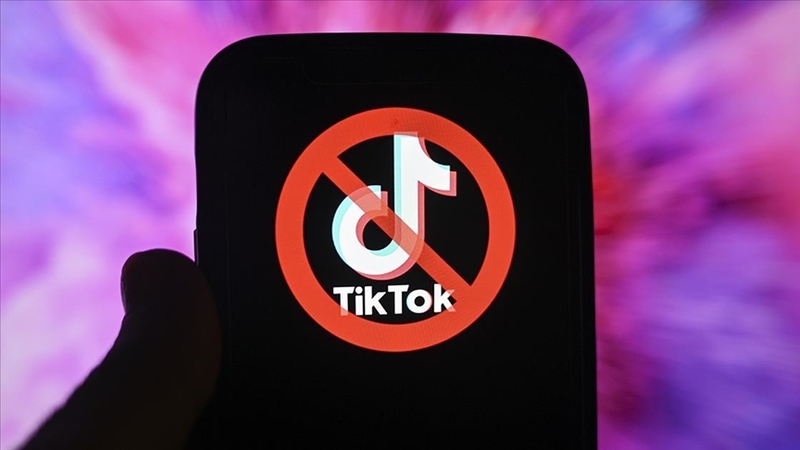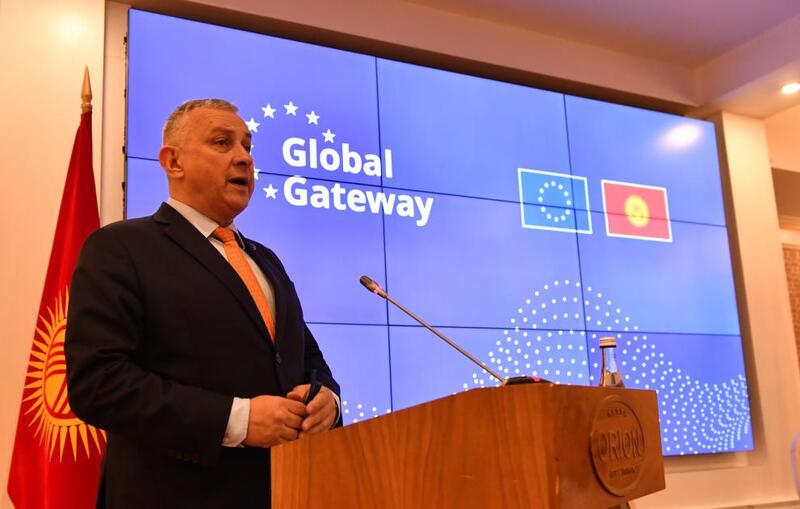 Tiktok logo with a red circle and diagonal line through it indicating a restriction on Tiktok. Photo Credits: Shiftdelete
Tiktok logo with a red circle and diagonal line through it indicating a restriction on Tiktok. Photo Credits: Shiftdelete
Digital Detox: Why Countries Are Banning Social Media
Social media platforms have transformed the way people connect, making the world a global village. Beyond personal connections with friends and family, social media has also become a hub for information dissemination and a key tool for businesses seeking to enhance their online presence and reach wider audiences.
Challenges in Safeguarding Young Users
With increased user engagement, social media platforms have faced criticism for failing to implement adequate safeguards to prevent minors from accessing the platforms. This issue has sparked global debates on the role of social media in protecting vulnerable groups.
Global Restrictions on Social Media Platforms
TikTok has been at the center of bans across several countries since 2022. In Afghanistan, the platform was prohibited to protect young people from potentially misleading information. Similar bans targeting TikTok on government-owned devices have been enacted in Belgium, Canada, Denmark, the European Union, and France. In countries like Syria, Nepal, India, and Iran, TikTok has been banned outright for all users. Most recently, Australia has followed suit with legislation aimed at restricting social media access for young people below the age of 16.
Australia’s Social Media Ban for Minors
On November 28, 2024, Australia imposed a ban on social media use for individuals under 16 years of age. The legislation requires social media companies to introduce mechanisms by the end of 2025 to prevent minors from accessing platforms. Companies that fail to comply could face fines of up to $33 million (50 million Australian Dollars).
Verification Challenges for Social Media Companies
Determining users' ages poses significant challenges for social media platforms, as companies may need to implement verification mechanisms such as video selfies, identification documents, and cross-referencing emails with other platforms. Critics have expressed concerns that these measures might alienate older users who are unfamiliar with advanced technologies.
Opposition from Tech Giants
Tech companies like Meta, Snapchat, and TikTok have voiced opposition to Australia’s legislation, citing rushed policies and lack of consultation. They argue the measures may exclude minorities who rely on social media for support and connection, while burdening parents and teenagers attempting to access these platforms.
Support for the Ban: Protecting Young People
Despite criticism, the ban has gained support from advocates who argue there is a need to protect young users and families from the harmful effects of social media, including mental health issues like anxiety, stress, and depression. Supporters believe social media companies must prioritize the well-being of users over profit motives.
Implications and Lessons for Other Nations
Australia’s legislation sets a precedent for other countries grappling with similar challenges. However, it calls for a balanced approach to regulations, as overly restrictive measures could hinder the benefits realized by businesses and individuals through social media platforms.
Challenges in Safeguarding Young Users
With increased user engagement, social media platforms have faced criticism for failing to implement adequate safeguards to prevent minors from accessing the platforms. This issue has sparked global debates on the role of social media in protecting vulnerable groups.
Global Restrictions on Social Media Platforms
TikTok has been at the center of bans across several countries since 2022. In Afghanistan, the platform was prohibited to protect young people from potentially misleading information. Similar bans targeting TikTok on government-owned devices have been enacted in Belgium, Canada, Denmark, the European Union, and France. In countries like Syria, Nepal, India, and Iran, TikTok has been banned outright for all users. Most recently, Australia has followed suit with legislation aimed at restricting social media access for young people below the age of 16.
Australia’s Social Media Ban for Minors
On November 28, 2024, Australia imposed a ban on social media use for individuals under 16 years of age. The legislation requires social media companies to introduce mechanisms by the end of 2025 to prevent minors from accessing platforms. Companies that fail to comply could face fines of up to $33 million (50 million Australian Dollars).
Verification Challenges for Social Media Companies
Determining users' ages poses significant challenges for social media platforms, as companies may need to implement verification mechanisms such as video selfies, identification documents, and cross-referencing emails with other platforms. Critics have expressed concerns that these measures might alienate older users who are unfamiliar with advanced technologies.
Opposition from Tech Giants
Tech companies like Meta, Snapchat, and TikTok have voiced opposition to Australia’s legislation, citing rushed policies and lack of consultation. They argue the measures may exclude minorities who rely on social media for support and connection, while burdening parents and teenagers attempting to access these platforms.
Support for the Ban: Protecting Young People
Despite criticism, the ban has gained support from advocates who argue there is a need to protect young users and families from the harmful effects of social media, including mental health issues like anxiety, stress, and depression. Supporters believe social media companies must prioritize the well-being of users over profit motives.
Implications and Lessons for Other Nations
Australia’s legislation sets a precedent for other countries grappling with similar challenges. However, it calls for a balanced approach to regulations, as overly restrictive measures could hinder the benefits realized by businesses and individuals through social media platforms.
Senior Editor: Kenneth Njoroge
Financial Expert/Bsc. Commerce/CPA

